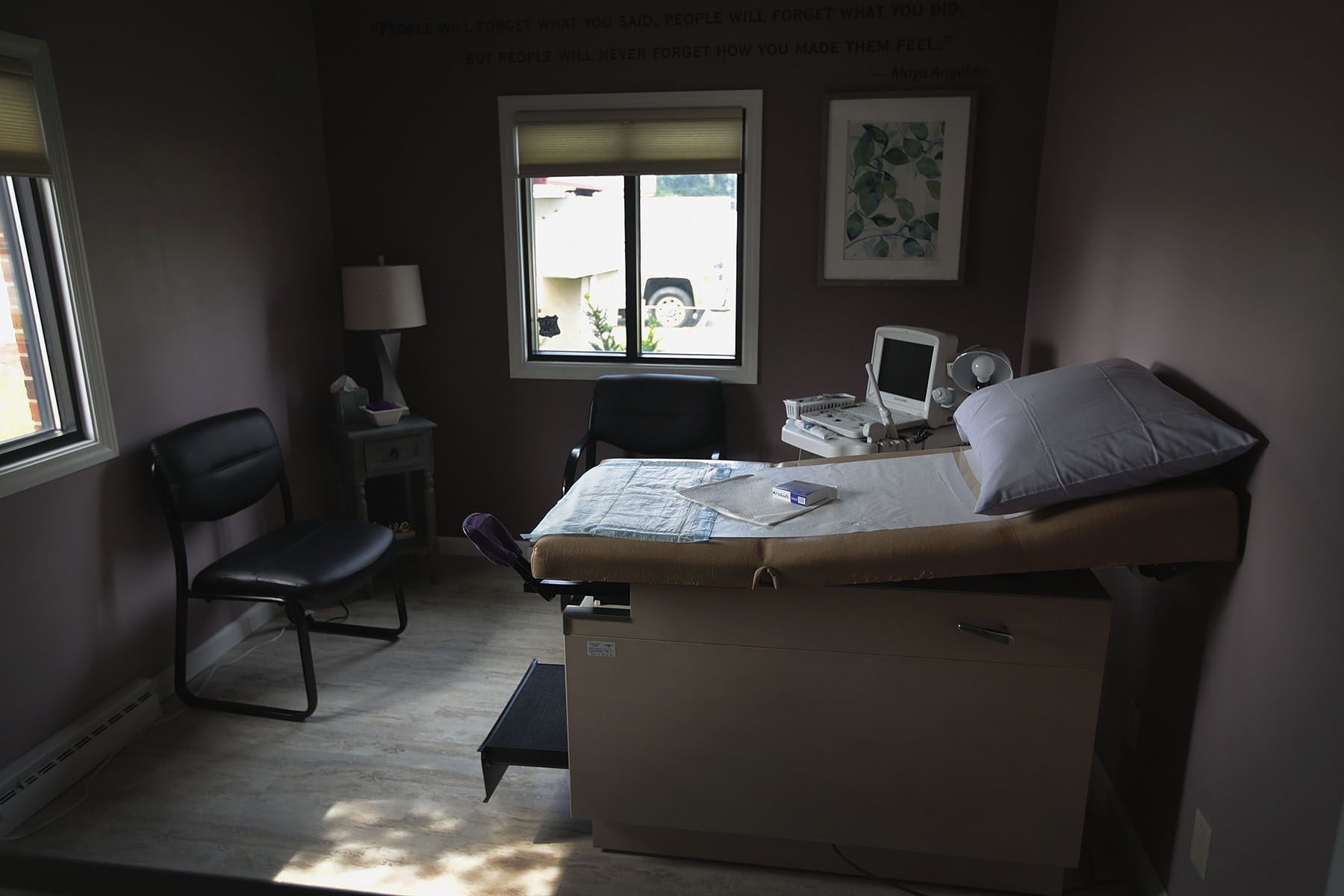*Correction appended.
Texas’ six-week abortion ban is causing wait times at clinics in surrounding states to surge, according to a new analysis.
Researchers from the Texas Policy Evaluation Project at the University of Texas at Austin conducted “mystery client calls” to clinics in Oklahoma, Louisiana and New Mexico, as well as in Arkansas, to schedule abortion-related visits. The calls were placed in the middle of September, soon after the Texas law had taken effect.
According to the analysis, wait times longer than two weeks were common, and the length of time it took to get an appointment were longer in most cases compared to July 2020 (the most recent data available).
The analysis confirms reports from clinics in Texas’ neighboring states, which have seen their patient loads soar since Senate Bill 8 took effect, with some saying the increase in volume may not be sustainable if it continues.
“There is early evidence, in the form of long wait times for appointments, that Texans seeking out-of-state abortion care are straining capacity at the small number of facilities in nearby states,” the report said.
Delays can result in more complex procedures — and more expensive ones. Medication abortions, for instance, are often cheaper and less invasive than surgical abortions, but they are not recommended after 10 weeks of pregnancy.
A two-week delay could push someone from being able to consider a medication option to the point at which only surgery is the only viable option.
In Oklahoma City, for instance, a medication abortion costs $650 at Trust Women, an abortion clinic that has reported a surge in Texas-based patients. Patients further than 10 weeks may receive a surgical abortion instead. The procedure still costs $650 if the patient is earlier than 11.6 weeks. If the patient is later in pregnancy, though, the price goes up.
“Given that they have fewer clinics and needed to take on so many additional patients, it is not surprising to see the wait times go up. It is really putting stress on these facilities,” said Kari White, the lead investigator of the Texas Policy Evaluation Project.
In Oklahoma, which has four abortion clinics, wait times ranged from five days to 23, per the report. That’s about double the range that existed in July 2020, when wait times ranged between two days and 12. In Louisiana, which has three clinics, patients calling for a first visit might experience a wait time of between eight and 19 days. In July of 2020, the typical wait time was eight days.
Both Oklahoma and Louisiana require patients make two appointments for an abortion — an initial one for counseling, following by a waiting period (three days in Oklahoma and one in Louisiana) before the patient can come for an actual abortion. In Oklahoma, the first visit can be over the phone, but Louisiana’s must be in person. The drive to a clinic in either state is typically hundreds of miles. Between the cost of lost wages, travel, child care, lodging and gasoline, such a trip could cost more than $1,000, per the report.
In New Mexico, which has six abortion clinics, including one only 20 miles from El Paso, wait times for an appointment in September ranged from one day to 20. In July of last year, wait times were between one days and 4.
New Mexico is the only one of Texas’ neighbors not to be considering new abortion restrictions. If Oklahoma, Louisiana or other states in the region successfully implement new limitations on the procedure, that could force patients to travel even further, going hundreds of miles each way. Those journeys will likely not be affordable for many patients, the report notes.
The Texas law is currently being challenged before the Supreme Court by some of the state’s abortion providers and by the Department of Justice. Oral arguments in the case are scheduled for Monday.
Correction: An earlier version of this article misstated the waiting periods in Oklahoma and Louisiana.
Recommended for you

Abortion clinics north of Texas are seeing double the number of patients than before state abortion ban





